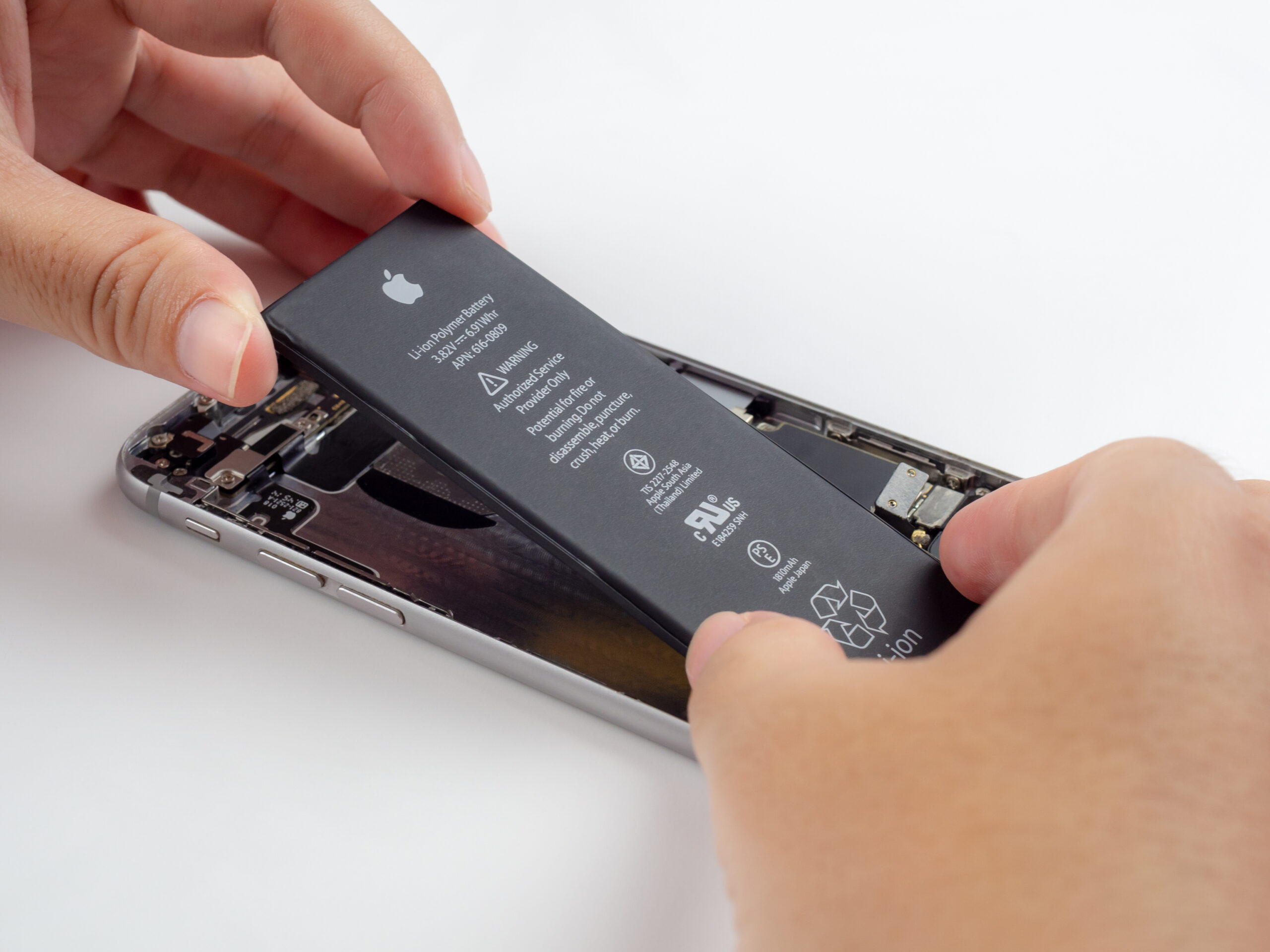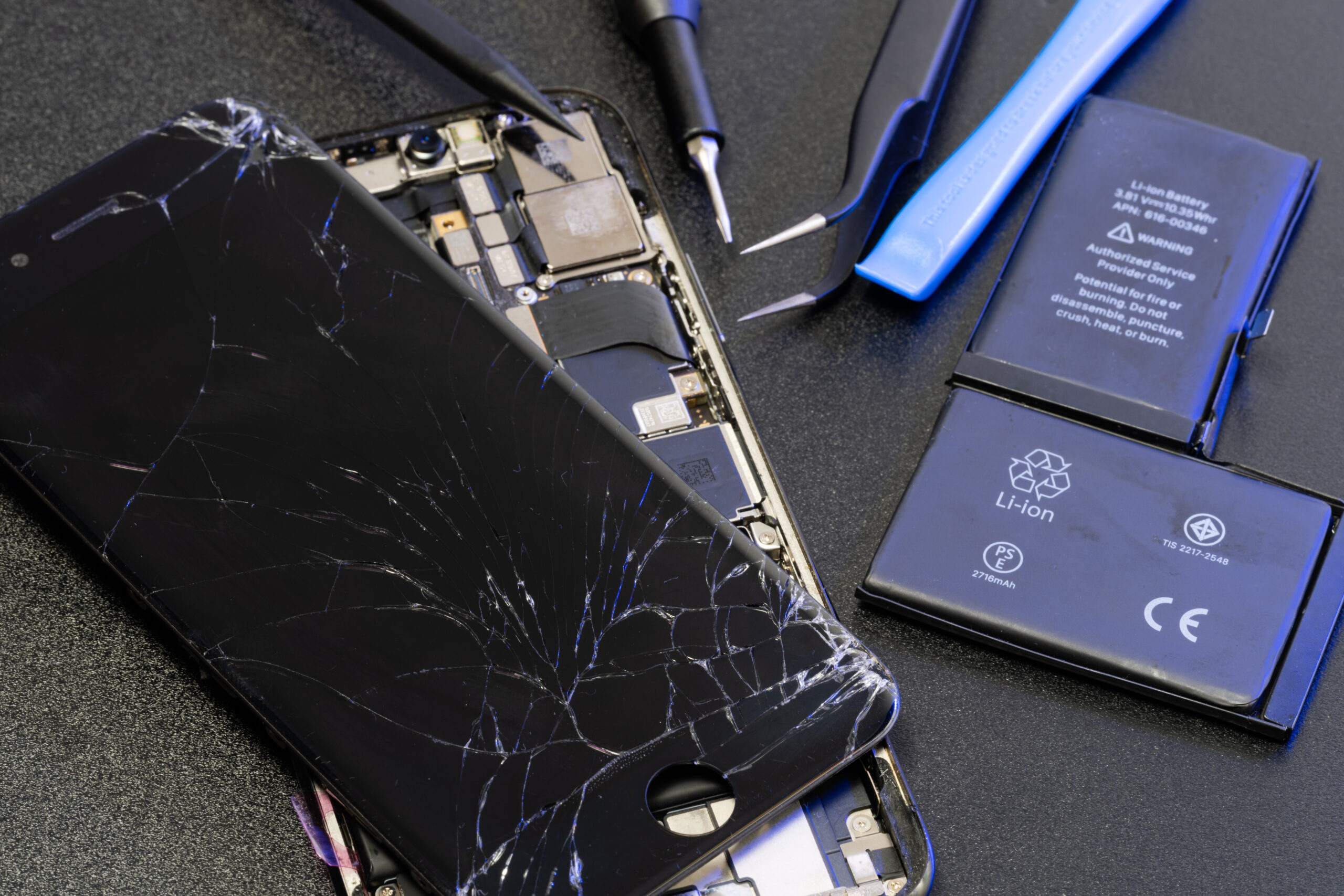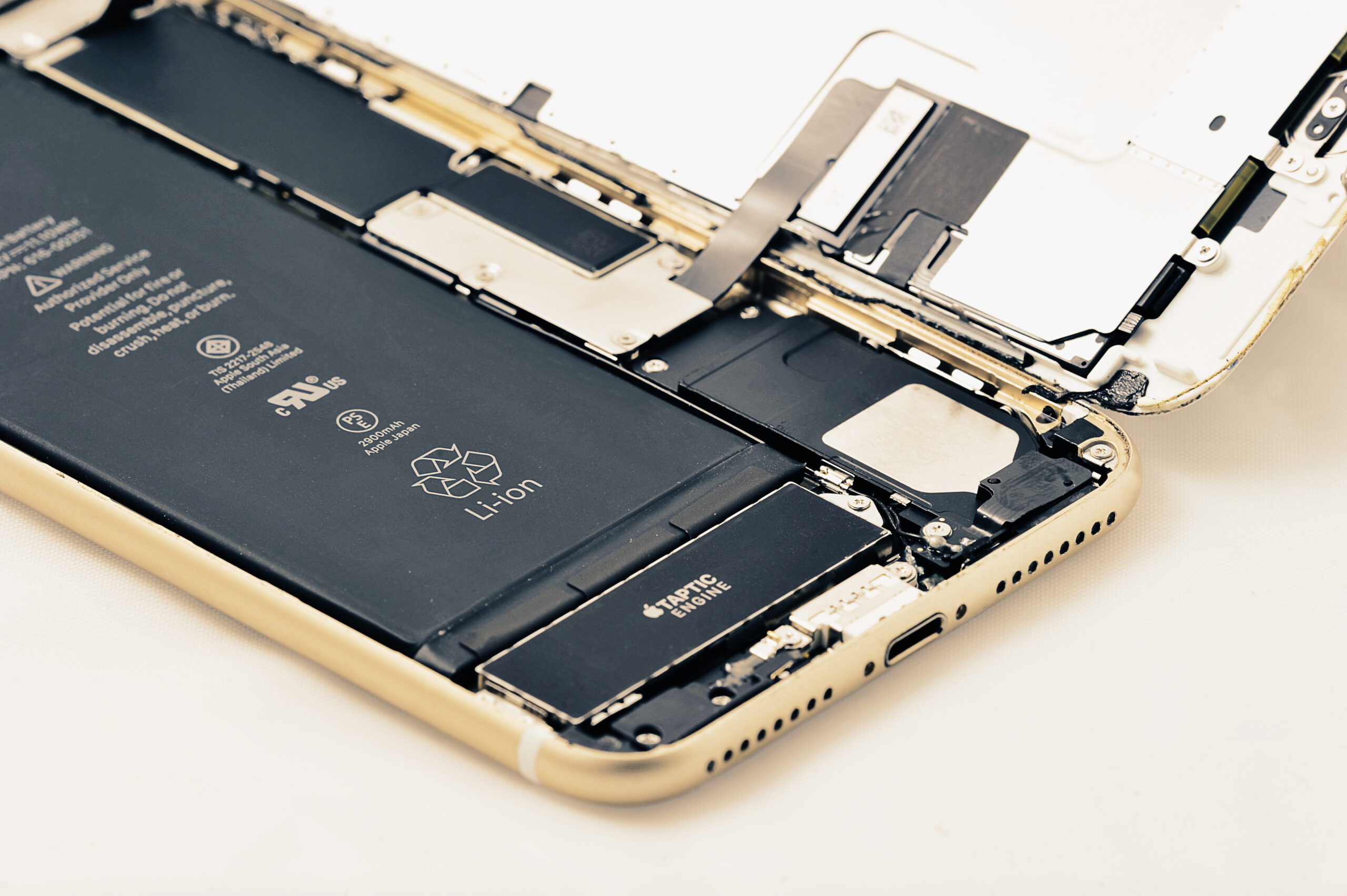In the world of smartphone repairs, the need for iPhone battery replacements is on the rise. As iPhones are crucial for our daily tasks, their batteries wear out over time, pushing users to opt for battery changes over buying new phones due to the high costs of the latest models. For repair store owners, tapping into this demand is key. Providing top-notch battery replacements can turn your store into a trusted spot for reliable services.
Offering quality battery replacements matters a lot. It ensures that iPhones work as well as they did when new, meeting customer expectations for performance and battery life. This approach not only draws in customers seeking dependable repairs but also builds loyalty, encouraging them to come back. In a market filled with competition, focusing on superior iPhone battery replacements can set your store apart, making it the go-to place for users wanting the best service for their devices.
Access unmatched digital marketing solutions and exclusive insights by connecting with our team at Repair Leads now. Take your business to new heights with our professional advice!
Selecting the Right iPhone Battery Replacement
Choosing the appropriate iPhone battery replacement is a critical decision for repair store owners aiming to provide superior service and attract more customers. This choice not only affects the quality of repairs but also influences customer satisfaction and the store’s reputation. To make informed decisions, it’s essential to understand iPhone battery specifications, the compatibility of these batteries with various iPhone models, and the differences between OEM (Original Equipment Manufacturer) and aftermarket batteries.
Compatibility with Different iPhone Models
The first step in selecting the right battery replacement is understanding the compatibility of batteries with various iPhone models. Each iPhone model uses a specific battery type designed to fit its unique size, shape, and power requirements. For instance, the battery used in an iPhone 12 cannot be used in an iPhone 8 due to differences in dimensions and connectors. Furthermore, the power needs and software compatibility also vary across models. Using a battery that’s not designed for a specific model can lead to issues like improper fit, software incompatibility, or even damage to the device.
It’s crucial for repair store owners to keep a detailed inventory of batteries that correspond to the wide range of iPhone models they service. Having a thorough understanding of each model’s battery specifications ensures that the right battery is always available for each customer’s needs, thereby increasing efficiency and customer satisfaction.
OEM vs. Aftermarket Batteries: Pros and Cons
When choosing iPhone battery replacements, repair stores must decide between OEM and aftermarket batteries. Each option comes with its own set of advantages and disadvantages that can significantly impact the service quality and customer experience.
OEM iPhone Batteries
OEM batteries are manufactured by Apple or its authorized manufacturers. These batteries are designed specifically for each iPhone model, ensuring perfect compatibility and performance.
- Pros:
- Guaranteed Compatibility: OEM batteries are guaranteed to work with the specified iPhone models, eliminating risks related to fit and functionality.
- Reliability: These batteries are produced to meet Apple’s strict quality and performance standards, offering customers peace of mind regarding battery life and safety.
- Warranty Support: Using OEM batteries may preserve the device’s warranty and is preferred for devices still under warranty.
- Cons:
- Cost: OEM batteries tend to be more expensive than aftermarket options, which can increase the cost of repair services.
- Availability: Sometimes, sourcing OEM batteries can be challenging due to supply constraints or restrictions from Apple.
Aftermarket Batteries
Aftermarket batteries are produced by third-party manufacturers and offer an alternative to OEM parts. They can vary widely in terms of quality and performance.
- Pros:
- Lower Cost: Generally, aftermarket batteries are less expensive than their OEM counterparts, potentially reducing the overall cost of repairs.
- Availability: These batteries are usually more readily available, providing repair stores with more flexible sourcing options.
- Cons:
- Variable Quality: The quality of aftermarket batteries can vary significantly, with some failing to meet the performance and longevity of OEM batteries.
- Compatibility Issues: There may be cases where aftermarket batteries do not fit as perfectly as OEM batteries, leading to potential issues with connectivity or performance.
- Warranty Concerns: Installing an aftermarket battery may void the device’s warranty, a factor to consider for newer devices.
For repair store owners, the choice between OEM and aftermarket batteries involves balancing cost, quality, and customer satisfaction. It’s essential to source high-quality aftermarket batteries from reputable suppliers if choosing to go this route. Ultimately, offering a mix of OEM and high-grade aftermarket batteries can provide customers with more options, catering to a wider range of needs and budgets.
By understanding iPhone battery specifications and carefully weighing the pros and cons of OEM versus aftermarket batteries, repair store owners can ensure they choose the right battery replacements. This not only enhances the quality of service provided but also helps in building a loyal customer base and distinguishing the store in a competitive market.
Top iPhone Battery Replacement Brands for Repair Stores
Genuine Apple Batteries: The Gold Standard
For repair stores aiming to offer the highest standard in iPhone repairs, sourcing and utilizing genuine Apple batteries is paramount. Genuine Apple batteries are regarded as the gold standard in iPhone repair parts due to their quality, reliability, and compatibility. However, accessing these batteries poses challenges, as Apple has stringent policies regarding the distribution of its genuine parts. Typically, Apple encourages users to get their devices serviced at authorized Apple stores or Apple Authorized Service Providers (AASPs). Despite this, recent initiatives like the Independent Repair Provider program have begun to offer independent repair shops the opportunity to access genuine Apple parts, tools, and training. This move has opened new avenues for repair stores to obtain genuine Apple batteries legally and ethically.
Benefits of Using Genuine Parts for Repairs
- Unmatched Compatibility and Performance: Genuine Apple batteries are designed specifically for each iPhone model, ensuring perfect compatibility. This means optimal performance, longevity, and safety for the end-user, which aftermarket batteries may not always guarantee.
- Preservation of Device Integrity: Using genuine Apple batteries helps maintain the device’s integrity. It ensures that the iPhone functions as intended, without the risk of potential issues that can arise from incompatible or substandard parts.
- Customer Confidence and Trust: Offering repairs with genuine Apple batteries can significantly enhance customer trust in your repair store. It assures customers that their iPhones are receiving the best care, which can lead to higher satisfaction rates, repeat business, and positive word-of-mouth.
- Compliance with Apple Standards: Utilizing genuine parts ensures compliance with Apple’s repair standards, which can be crucial for maintaining warranty coverage for the device. This compliance is particularly important for newer iPhone models still under warranty.
Leading Aftermarket Brands: Quality and Value
While genuine Apple batteries represent the ideal choice for iPhone repairs, the reality of cost and availability constraints makes aftermarket batteries a viable option for many repair stores. Several leading aftermarket brands have emerged, offering quality and value that challenge the notion that only genuine parts can provide satisfactory repair outcomes. These brands have invested in research and development to produce batteries that meet or exceed the performance of OEM parts in some aspects.
A Comparison of Top Aftermarket Brands
When evaluating aftermarket brands, it’s crucial to consider factors such as battery life, the accuracy of capacity ratings, and compatibility with iPhone models. Brands like iFixit, NuPower, and Anker stand out for their commitment to quality and transparency. They offer batteries that often come with comprehensive warranties, detailed installation guides, and dedicated customer support, setting them apart from lesser-known aftermarket options.
Warranty and Support Considerations
One of the key advantages of selecting leading aftermarket brands is the warranty and support they offer. Unlike generic aftermarket batteries, these brands stand behind their products with warranties that sometimes match or exceed the coverage period of genuine Apple batteries. This warranty can be a significant selling point for customers concerned about the longevity and durability of their battery replacement.
Furthermore, top aftermarket brands typically provide exceptional customer support, offering assistance during the selection and installation processes. This support can prove invaluable for repair stores, ensuring that they can confidently address any issues that arise during or after the repair process.
For repair store owners, the choice between genuine Apple batteries and leading aftermarket brands involves balancing factors like quality, cost, customer satisfaction, and warranty coverage. Genuine Apple batteries offer unmatched compatibility and performance, fostering customer trust and compliance with Apple’s standards. Meanwhile, reputable aftermarket brands provide quality alternatives that can offer better value, accompanied by solid warranty and support services. By carefully selecting their sources for iPhone batteries, repair stores can cater to a broader customer base, ensuring satisfaction and loyalty through high-quality repair services.
Installation Tips and Best Practices
Pre-Installation Advice
Testing Battery Health Before Installation
Before proceeding with a battery replacement, it’s vital to assess the health of the battery being installed. This step ensures that the new battery is in optimal condition and will provide the performance expected by the customer. Use professional battery testing tools to check the battery’s capacity and potential cycle count. These tests can reveal any underlying issues with the battery, such as diminished capacity or a manufacturing defect, before it is installed in the customer’s device. Ensuring the battery’s health beforehand can prevent future complaints and the need for rework, thereby saving time and resources.
Ensuring Compatibility and Avoiding Common Pitfalls
Compatibility checks are paramount. Each iPhone model requires a specific battery, and using an incorrect one can lead to numerous problems, including poor fit, software incompatibility, or even damage to the device. Always verify the battery model against the iPhone model you’re servicing to avoid these pitfalls. Additionally, be aware of common compatibility issues, such as mismatched connectors or firmware incompatibilities, which can cause the iPhone to reject the new battery or function improperly.
In conclusion, taking the time to test battery health and ensure compatibility before installation can significantly impact the success of the repair and the satisfaction of your customers. These steps, though sometimes overlooked, are key to avoiding common pitfalls and establishing your repair store as a reliable and professional service provider in the competitive iPhone repair market.
Summary: Ensuring Excellence in iPhone Battery Replacements
The key to ensuring the success of your repair store is the continuous pursuit of learning and adaptation. The technology and market for iPhone repairs are ever-evolving, necessitating an ongoing effort to stay informed about the latest products, techniques, and industry standards. Embracing this mindset of growth and improvement will not only enhance the quality of your service but also position your store as a trusted leader in the repair industry.
A pivotal aspect of this journey is the cultivation of a community among repair professionals. Encouraging feedback, sharing best practices, and engaging in collaborative learning can significantly elevate the standards of service across the board. By fostering an environment where knowledge and experiences are freely exchanged, repair stores can collectively push the envelope of what’s possible in iPhone battery replacement services.
Wrapping up, the selection of iPhone battery replacements plays a foundational role in the success and reputation of a repair store. Balancing quality, cost, and customer satisfaction is paramount. Offering genuine or high-quality aftermarket batteries, ensuring compatibility, and backing up services with strong warranties and support are all critical elements that contribute to a positive customer experience. Ultimately, the commitment to excellence in every aspect of the battery replacement process not only satisfies your current customers but also attracts new ones, ensuring the long-term success and growth of your business. Let this discussion serve as a catalyst for your store to not only meet but exceed the expectations of your customers, setting new standards of excellence in the iPhone repair industry.


